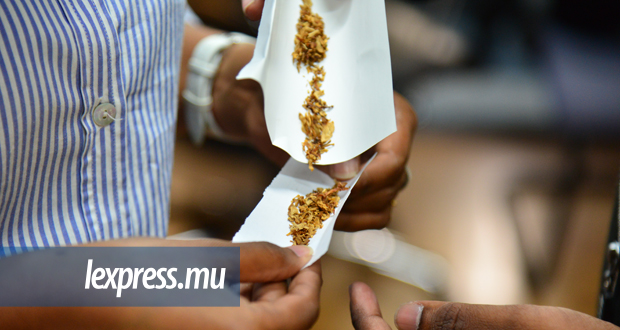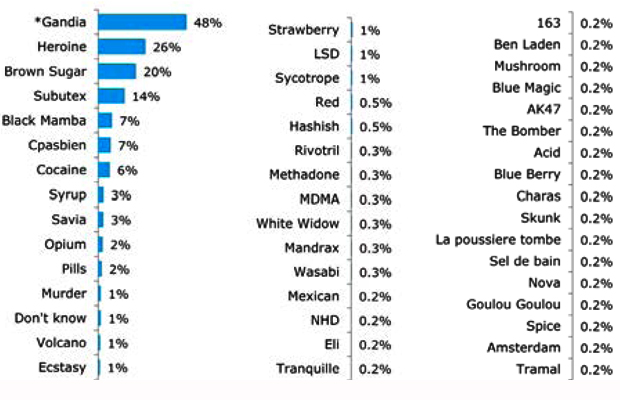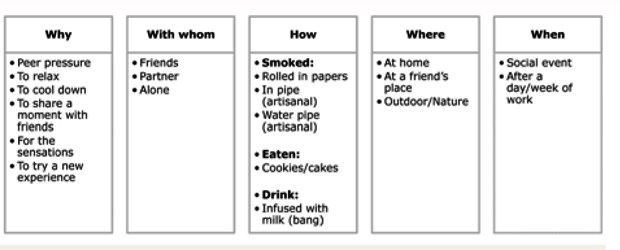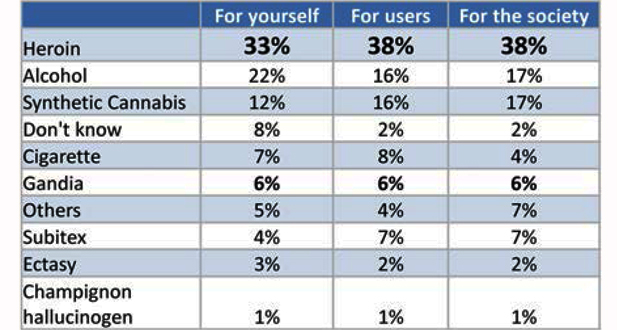Publicité
Image and perception of drugs in Mauritius – 2015*
Par
Partager cet article
Image and perception of drugs in Mauritius – 2015*

Drugs top the list of social problems in Mauritius and about half of Mauritians interviewed admit that they are directly or indirectly concerned and exposed to this problem. More and more different types of drugs, including dangerous synthetic drugs, are penetrating the Mauritian market.
However, the case of Marijuana/Gandia needs to be well situated in this context as it generates mixed emotions and feelings: 36% think that Marijuana is harmless if a reasonable amount is consumed vs 30% who are uncertain and 33% who think that Gandia/Marijuana is harmful. 34% think that Marijuana must not be considered as a crime and must be treated just like cigarettes and alcohol vs 23% who are uncertain and 43% who are against this view. 46% claim that the law must make a difference between Marijuana and other illegal substances vs 31% who are uncertain and 23% who are against.
Mauritius is, without any doubt, riding the globalization and new technology wave. Locals are increasingly connected to foreign countries, either through the Mauritian diaspora, Internet or via paid TV and overseas travel. They are thus exposed to new and novel practices across the world and across different domains in life, and drugs is no exception. However, there is no clear preference for a particular legal framework of DRUGS: 46% are against repressive laws while 54 % are for repressive laws (30% for highly repressive laws as in South East Asia and 24% for Mauritian laws).
Given the numerous negative impact of drugs (social, health, political, economical), there is a need to rethink about existing Mauritian laws concerning illegal substances for the war on drugs to be more effective.
Quantitative Study
Face to face interviews, using the Computer Aided Personal Interview technique, were conducted during the period 24th of June to 8th of August 2015. With a sample size of 600, the data presented in this report incurs a margin of error of 4% at the 95% confidence interval.
The Population Proportional Sampling methodology was used to constitute the sample, based on different zones, as classified by the Central Statistical Office. This methodology allowed an “area representative’’ sample of respondents to be selected. For each zone, easily identifiable landmarks/points (churches, schools, Tabagies, Selling points, road junctions, bridges etc) were determined, which acted as starting points and the interviewer then followed a ‘random route walk’ methodology from that starting point to select the respondents.
The sample was then reweighed to be nationally representative in terms of gender, ethnic group, age group, socio economic group and geographical region across Municipal Council Areas and Village Council Areas of Mauritius. 20% of interview call checks were also carried out to ensure reliability of the collected information.
Understanding of ‘drugs’
There is consensus that drugs pertain to anything that has a psychological effect on the human body and that could make one be addicted to. “Cigarette oussi ene la drogue parski ou pa kapav san pass li” ( Cigarette is also a drug as you cannot do without it). It has been highlighted that excess consumption of any substance can also be considered as drugs. “Tou sibstans ki ou pran en exces, lalkol oussi’’. (All substance you take excessively, including alcohol).
Awareness of drug names
Common drug names like Heroin, brown sugar, cocaine, subutex, methadone, Gandia/ Marijuana, synthetics drugs have been mentioned by almost all participants. Moreover some participants added that medicines, panadol, valium, alcohol and cigarette are also drugs.
The awareness level of drugs of mothers was rather surprising. Drug names Cpasbien, Black Mamba, la colle, hashish, Gandia/Marijuana, Wazabi have been spontaneously mentioned. They are more alert since they have a constant fear that their children might be influenced and consume one of them.
“Ou tend tous kalité nom la drogue dans radio ou lor jounal aster, et li bien inquitant pour nous comme parent”. (We hear or read several names of drugs on the radio or in newspapers and we are quite worried as parent.)
What drugs do you know?

Respondents were asked what drugs are they aware of. Spontaneously, 47 different types of drugs have been mentioned by the interviewed sample. They tend to relate drugs to only illicit substances. Nearly one out of two mention Gandia/ Marijuana as a drug.
Perception about Gandia/Marijuana consumption

Which drug is perceived as being more dangerous?

A list of drugs was read to respondents and they were asked to evaluate which drug is most dangerous for themselves, for the users and for the society. Heroin is perceived to being the most hazardous substance be it for respondents, for the users of heroin or for the society. Only 6% of the interviewed sample considered Gandia/Marijuana as dangerous.
* Selected extracts from a study undertaken by TNS Analysis.
Publicité
Publicité
Les plus récents






